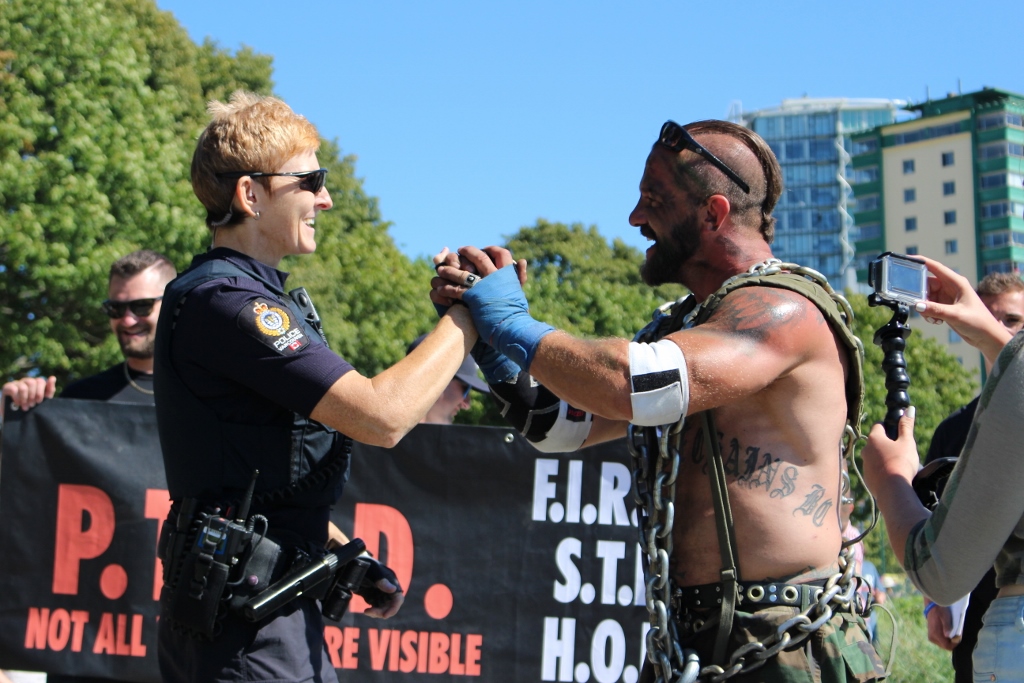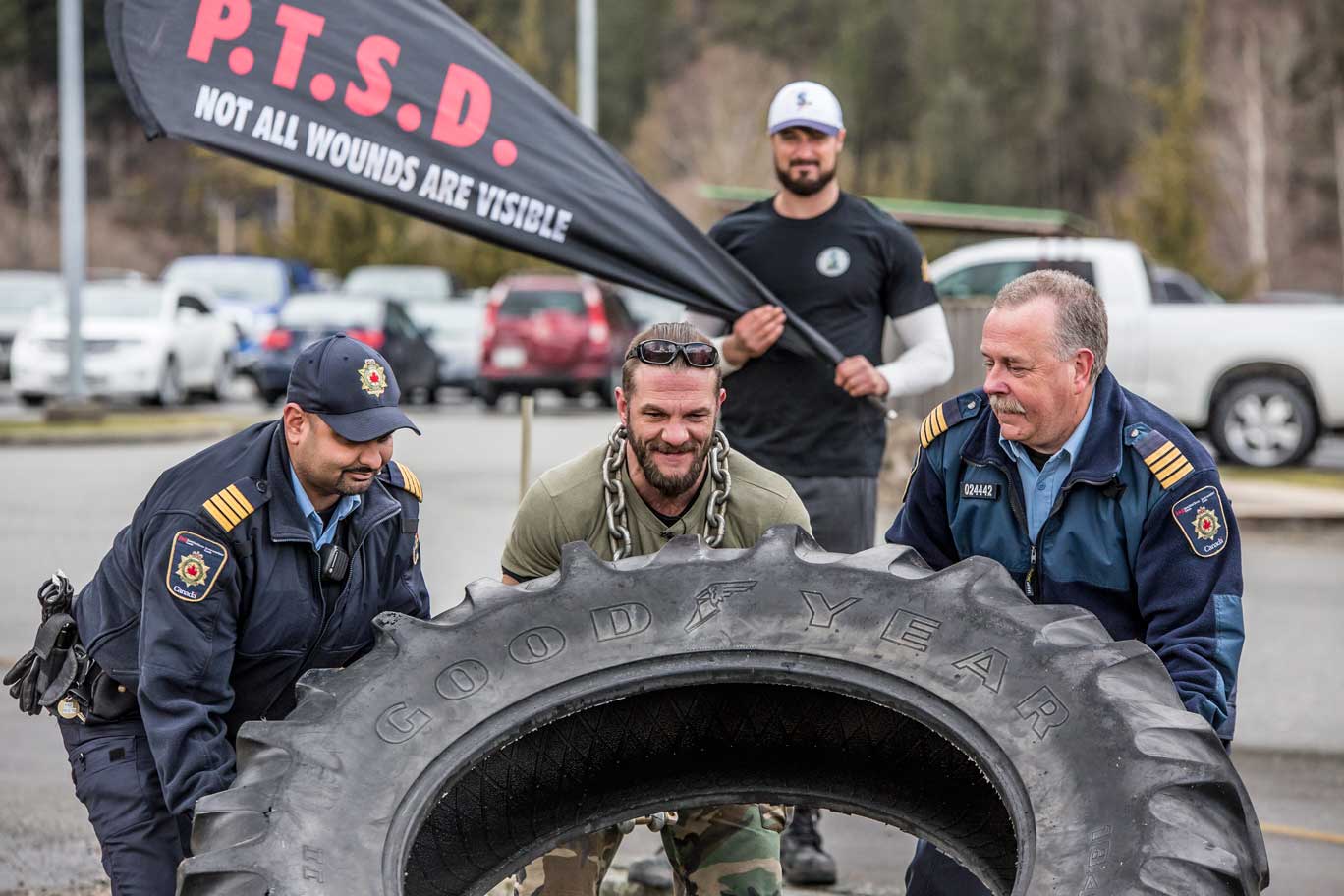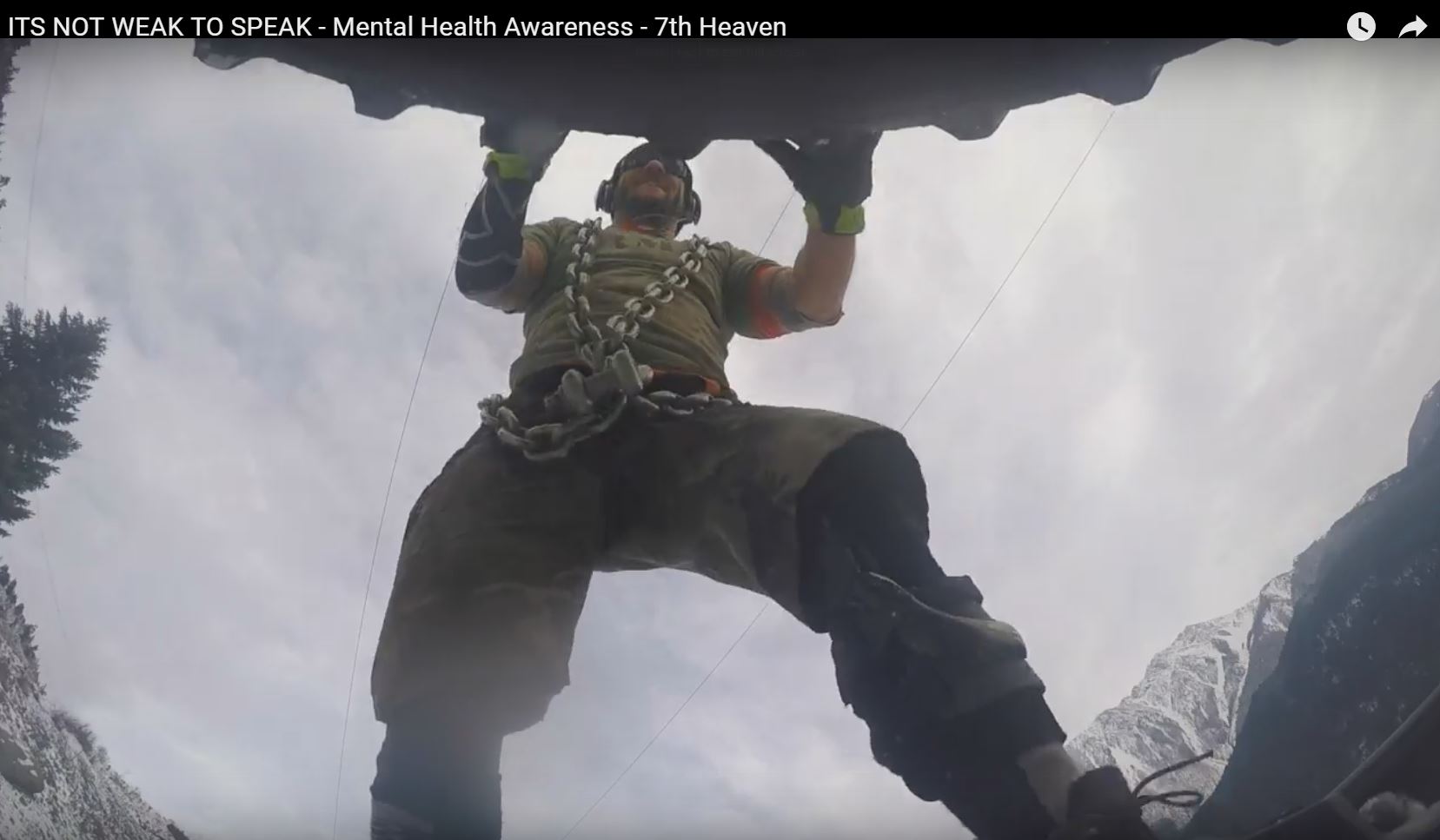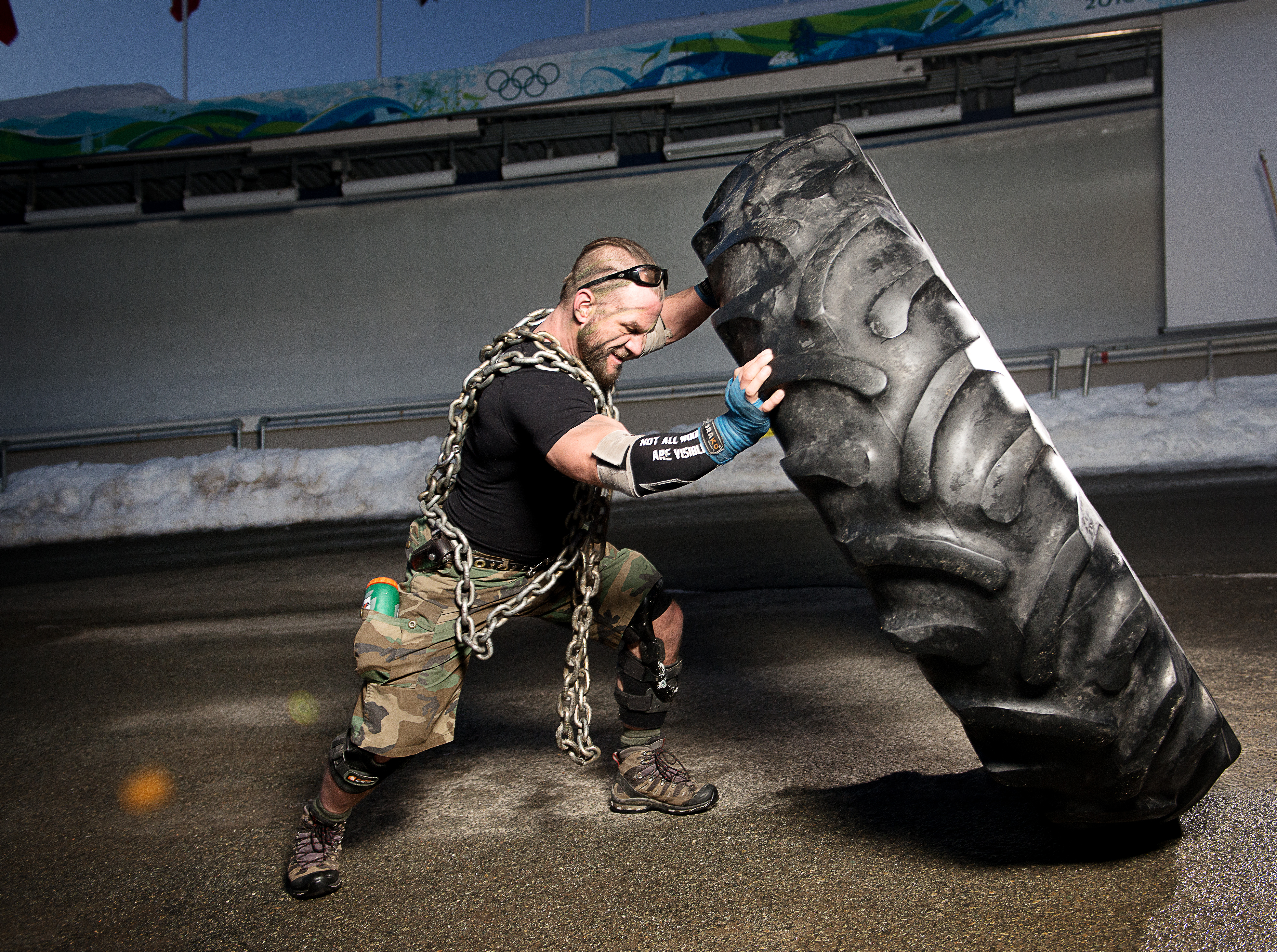Today, 3 very special Vancouver Police Officers helped us flip our tire a few more KMs to help raise awareness to PTSD, and inform the public of our petition they can help sign that will give all British Columbian First Responders the help they need upon asking for it.
Instead of the years and YEARS of suffering from denial after denial from WCB.
Just last week, 2 more Police Officers ended their lives with their own service revolver.
see petition on home page –
heres your vid
PTSD and Suicide
Not every call ends when the paperwork is filed. PTSD is far more rampant in law enforcement than anyone is really willing to discuss.
PTSD statistics for law enforcement officers are hard to obtain, but range from 4-14%. The discrepancy in this range may be due to underreporting. Living through a traumatic event is hard enough for an officer, admitting that you are having problems related to that event is even harder. There are an estimated 150,000 officers who have symptoms of PTSD. Actually, recent research indicates that 1/3 of active-duty and retired officers suffer from post-traumatic stress; but most don’t even realize it. Law enforcement officers are also at a much higher rate of developing a cumulative form of PTSD related to their exposure to multiple traumatic events. For every police suicide, almost 1,000 officers continue to work while suffering the painful symptoms of PTSD.
Suicide Warning Signs
The officer is talking about suicide or death, and even glorifying death.
Officer is giving direct verbal cues such as “I wish I were dead” and “I am going to end it all.”
Officer is giving less direct verbal cues, such as “What’s the point of living?”, “Soon you won’t have to worry about me,” and “Who cares if I’m dead, anyway?”
The officer is self-isolating from friends and family.
The officer is expressing the belief that life is meaningless or hopeless.
The officer starts giving away cherished possessions.
The officer is exhibiting a sudden and unexplained improvement in mood after being depressed or withdrawn.
The officer is neglecting his/her appearance and hygiene.
The officer is annoyed that they are going to do something that will ruin his/her career, but that they don’t care.
Officer openly discusses that he/she feels out of control.
The officer displays behavior changes that include appearing hostile, blaming, argumentative, and insubordinate or they appear passive, defeated, and hopeless.
The officer develops a morbid interest in suicide or homicide.
The officer indicates that he/she is overwhelmed and cannot find solutions to his/her problems.
The officer asks another officer to keep his/her weapon.
The officer is acting out of character by inappropriately using or displaying his/her weapon unnecessarily.
The officer exhibits reckless behavior by taking unnecessary risks on the job and/or in his/her personal lives. The officer acts like he/she has a death wish.
The officer carries weapons in a reckless, unsafe manner.
The officer exhibits deteriorating job performance.
The officer has recent issues with alcohol and/or drugs.
Act Now
It is important for law enforcement leaders to identify these warning signs to establish a profile of potential at-risk officers and proactively intervene by providing mental health resources and departmental support. If you, as an officer, have noticed one or more of the above behaviors in a colleague, do something now. Ask the officer what is going on in his/her life. Ask if they are okay and how he/she is handling a current stressor. Ask them if they feel depressed, and ask them about suicidal thoughts. Help them get the help they need before they take a life – their own. If they won’t seek help on their own go to a trusted supervisor with your concerns. Yes, this is one situation where you may have to break the code of silence. If something is still not being done, go to someone else: the chaplain, your union representative, the department clinician. You are willing to go to any lengths for an officer who needs assistance on a call; you are willing to risk your life for him at every scene. Do something today to prevent the loss of an officer by his or her own hands.
If you are an officer who is hurting and contemplating suicide, reach out now. There are many people who really do care about you, who really do want to help you, who don’t want to attend your funeral. Seeking help is a sign of strength not of weakness. It is the first step in reestablishing control in your life. Always remember when there is life there is hope.
Respectfully –
Terrance Joseph Kosikar









